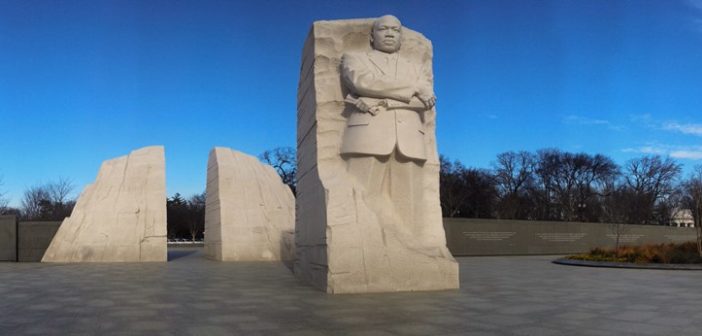By Tierra Doughty, Contributing Writer
“I have a dream that my four little children will one day live in a nation where they will not be judged by the color of their skin but by the content of their character.”
Every third Monday of January, the United States commemorates the birthday of Dr. Martin Luther King Jr, an influential civil rights activist who fought for the equal rights of African Americans and preached his timeless message of achieving equal rights through non-violence.

A significant attribute of King was his ability to reach any audience with his eloquently written speeches. His background as a Baptist minister furthered his appeal to a larger audience.
“Dr. King was very charismatic and combined the worldly education with preaching. That magnified his impact,” said, Dr. Eileen O’ Brien, associate chair of social sciences and professor of sociology at Saint Leo.
He was so influential that monuments have been built around the world including Sweden, Israel, England, Hungary, Ghana, and notably across the United States.
However, King was not a passive civil rights leader people label him as despite his non-violence approach. King’s quotes are often taken out of their context to paint him as a different leader instead of the outspoken, radical leader he was on black issues.
Dr. Heather Parker, dean of college of arts and sciences at Saint Leo University, explained, “Martin Luther King Jr’s legacy has been sanitized to be more palatable to a broader community. What people broadly thought of King was that he was gentle, non-violent, and the prime example of how people should protest but that is not who he was.”
“Martin Luther King was a revolutionary. When you compare him with Malcolm X, someone who known for being a revolutionary, it is the complete opposite. Malcolm X was willing to work with the status quo— keeping the races separate and having African Americans be left alone to develop within their own communities. That was not revolutionary, it was keeping things the way they were.”
“There was nothing soft about Dr. King. He was all about putting the establishment on its heels and making them sit up and take notice.”
Some individuals are diminishing the legacy of Dr. King by confronting to remove any mention of racism and segregation in the school curriculum because they deem those subjects as “divisive”.
In Virginia, an addition to proposed in 2022 would bar school boards from teaching and discussing “divisive content”, including the concept of superiority of a religion, ethnicity, or sex in addition to race. Some individuals believed King would wholeheartedly support the bill.
“A lot of citizens right now are trying to storm the school boards trying to change what is taught in the curriculum to make sure no one mentions race anymore,” said O’ Brien.
“But you must look at the evidence, you can’t go by how you feel. It is a shame that they are using Dr. King’s legacy that way, and his family has even denounced their actions.”
King and his late wife, Coretta Scott King, were survived by their children, Dexter King, the late Yolanda King, and the youngest, Bernice King.
Bernice King is a lawyer and activist who posts on twitter about the recent happenings and injustices in modern America against black citizens along with speaking at various conferences every year to discuss making social changes. She is keeping her father’s legacy alive by educating citizens across the country through the non-profit.
In 2020, amidst the COVID-19 pandemic, people around the nation supported the and protested for victims of police brutality including George Floyd and Breonna Taylor.
During those protests, the question if people more informed about problems the black community faces due to technology, or if technology gave platforms to extremist ideologies rooted in racism arose and is still a current discussion.
“I like to think people know more on black issues at this time. I do know the 2020 protests were a moment that kinda dropped off. Time will tell,” said O’Brien.
Being an ally who is informed on black issues that are ongoing in the community is beneficial in the fight against injustices.
“To be an ally and uplift black lives, citizens need to be involved,” Parker started, “What we are missing in this generation is the commitment to being involved. To look back and see what you can do for the people and ones coming after you. Gather momentum around you for causes, attract people who are doing the same things as you, and create an initiative that will make people stronger around you. That’s what we all can do.”
King emphasized the importance of not remaining silent when striving for change.
“In the end, we will remember not the words of our enemies, but the silence of our friends.”





